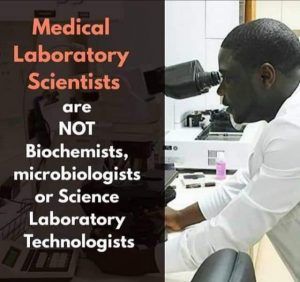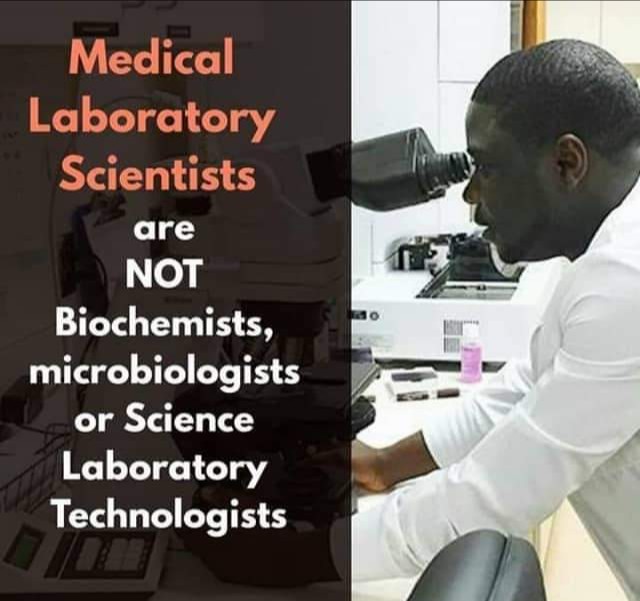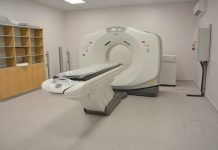Can a biochemist become a medical laboratory scientist?
Biochemistry is a branch of science that deals with the chemical processes within and outside of living things. Biochemistry is a laboratory based science that combines biology and chemistry. Biochemistry aims to understand the mechanisms that are the basis of life by describing the structure and function of bio-molecules.
It is the discipline that attempts to understand the workings of ourselves and our interactions with nature from the direction of both the physical sciences and biological sciences. You can study biochemistry in the university in two forms: (1) Medical Biochemistry (2) Biochemistry and Molecular Biology and receive a Bachelor of Science degree in Biochemistry (BSc. Biochemistry). The course spans for 4 years.
Medical laboratory science is the use of chemical laboratory tests to detect, diagnose, monitor, and treat diseases. Blood, tissue, and body fluids can be chemically analyzed and examined for foreign organisms and abnormalities. A Medical laboratory scientist aims to analyze a variety of biological specimens.
They perform scientific testing on samples and relay results to physicians. They use sophisticated clinical equipment like microscopes, cell counters and other high precision equipment to carry out tests in chemistry, hematology, immunology, transfusion medicine, and microbiology.
The decision of a physician regarding a patient’s diagnosis, hospital admission, treatment, and discharge is heavily dependent on a Medical laboratory scientists report. Medical laboratory scientists work in places such as hospital, clinics, forensic and public health laboratories, Pharmaceutical industries, Biotechnology companies, Vet clinics, and research institutions. Medical laboratory science lasts for 4 years in the university.

Yes, in Nigeria a graduate of Biochemistry can apply for Direct entry or Post graduate entry to study Medical laboratory science. The knowledge gained studying Biochemistry will definitely make studying Medical laboratory science easier as Biochemistry is one of the key areas under Medical laboratory science as well as Microbiology. But note that easier does not mean easy, some areas such as use of clinical equipment, immunology and transfusion medicine may still proffer some level of difficulty.
Most universities accept students with minimum of a 2nd class upper in relevant courses (Microbiology, Biochemistry, Anatomy, etc) for admission to study Medical laboratory science, some schools accept 2nd class lower but this reduces the chances of being admitted.
Generally, some of the requirements are while each university has unique criterion for admission, you need at least five ‘credit’ passes in English, Mathematics, Physics, Chemistry and Biology in not more than ‘two sittings’ at O’level to study Medical laboratory science. It is also advisable to visit your proposed school of admission for enquiries. You can get admission by purchasing a Joint Admission and Matriculation Board Direct Entry Form (JAMB DE Form).
As a Biochemist, after getting your degree in Medical laboratory science, you can move on to do an internship in an accredited laboratory (which may improve future chances of employment), get certified as a Medical laboratory scientist and move on to get experience in the health sector.
Shyllon Olayinka Enoch, Undergraduate student of Biochemstry at Obafemi Awolowo University.
Twitter; @blackpeggy103
This article is the intellectual property of www.nimedhealth.com.ng























